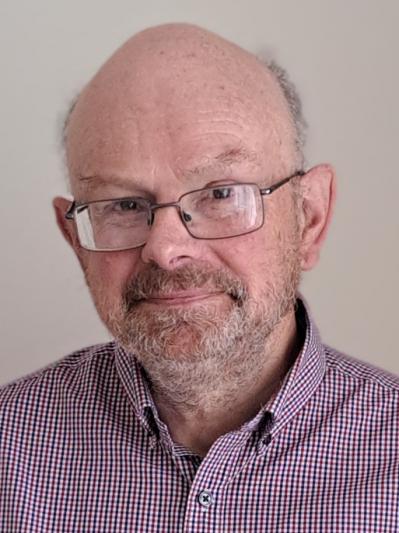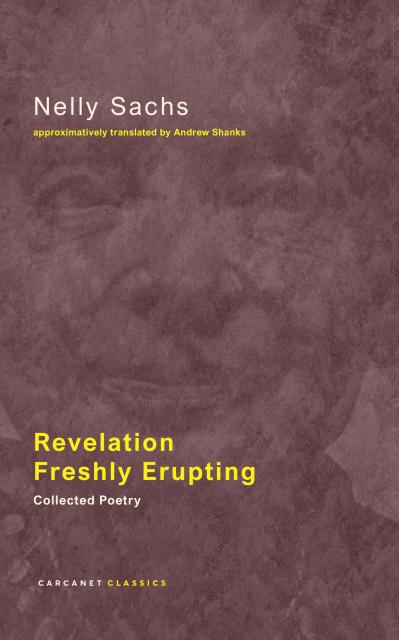
Quote of the Day
an admirable concern to keep lines open to writing in Ireland, Scotland, Wales and America.
Seamus Heaney
Book Search
Subscribe to our mailing list
News
Andrew Shanks Wins 2024 Warwick Prize for Women in Translation
Thursday, 21 Nov 2024
 Congratulations to Andrew Shanks, who has been announced as the winner of the 2024 Warwick Prize for Women in Translation with Revelation Freshly Erupting by Nelly Sachs!
Congratulations to Andrew Shanks, who has been announced as the winner of the 2024 Warwick Prize for Women in Translation with Revelation Freshly Erupting by Nelly Sachs!The £1000 prize was established by the University of Warwick in 2017 to address the gender imbalance in translated literature and to increase the number of international women’s voices accessible by a British and Irish readership. The prize is judged by Amanda Hopkinson, Boyd Tonkin and Susan Bassnett.
This is the first time a poetry collection has won the prize. The judges said of the book, 'For many English-language readers, Andrew Shanks's versions of the work of Nelly Sachs will bring a new poetic planet into view. Sachs emerges as a great poet of mourning and remembrance, and a commanding witness to the emotional afterlives of the exiled and dispossessed – a key experience of our world as much as hers.
'Deeply thought, finely crafted, Shanks's English transformations of her verse also give her ecstatic lyricism its proper due. This volume is an epic achievement: it wrests a visionary language, where tragedy and transcendence meet, from the darkest places of 20th-century experience.'
Well done Andrew!
Find out more here.
 The Jewish poet Nelly Sachs (1891–1970) writes in direct response to the Holocaust. She is uniquely a 'prophetic' poet, one of the greatest of that species in the twentieth century.
The Jewish poet Nelly Sachs (1891–1970) writes in direct response to the Holocaust. She is uniquely a 'prophetic' poet, one of the greatest of that species in the twentieth century.Her first book appeared in the immediate wake of the Second World War, in 1946. Since that time, Hans Magnus Enzensberger declared, 'she has been writing fundamentally a single book'. That book is represented in this volume which reveals her whole progression rendered into English. Unlike earlier translators, Andrew Shanks calls his versions 'translations/imitations', moving away from the doggedly literal to render more faithfully the sense and intention of the originals.
Sachs escaped Berlin in May 1940. She found refuge in Sweden. Her major work is an evolving response to the trauma of the Holocaust. In 1966 she received the Nobel Prize for Literature. This book includes all the lyric poetry Sachs published in her lifetime and adds the posthumous collection Teile dich Nacht, an introductory essay, and notes.
Her poetry begins as a monumental lament for the victims of the Holocaust. Other themes develop: biblical, Kabbalist and religious allusions, personal bereavement, mental breakdown. And there are reflections on poetic vocation in the darkness of recent history.
Previous Item Next Item
Share this...

Quick LinksCarcanet PoetryCarcanet ClassicsCarcanet FictionCarcanet FilmLives and LettersPN ReviewVideoCarcanet Celebrates 50 Years!
The Carcanet Blog
We've Moved!
read more
Books of the Year
read more
One Little Room: Peter McDonald
read more
Collected Poems: Mimi Khalvati
read more
Invisible Dog: Fabio Morbito, translated by Richard Gwyn
read more
Dante's Purgatorio: Philip Terry
read more


We thank the Arts Council England for their support and assistance in this interactive Project.
This website ©2000-2025 Carcanet Press Ltd

